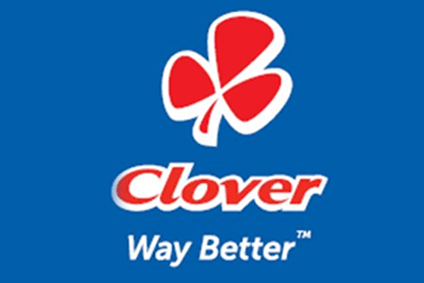
South African dairy group Clover Industries reported a 44% slide in its full-year operating profit, citing “once-off” impacts from a prolonged drought, a wetter and cooler summer and volatility in the rand, factors it said were beyond its control.
Operating profit for the 12 months through June came in at ZAR315m (US$24m), while the profit margin fell to 3.1% from 5.7%, the company said in a statement today (12 September). Headline earnings per share slid 66% to 63.9 cents, within the guidance flagged last week when Clover issued another profit warning following the one in May. Because additional working capital is required to restore growth, no final dividend was declared, bringing the total dividend for the financial year to 24.21 cents.

Discover B2B Marketing That Performs
Combine business intelligence and editorial excellence to reach engaged professionals across 36 leading media platforms.
Commenting on the performance, CEO Johann Vorster said: “Clover faced an exceptionally challenging year as South African food producers and retailers had to contend with several complex and ongoing issues in the economy. The resultant above-inflation input costs, subdued volume growth and continued low consumer spending amidst aggressive competitor pricing meant that we had to take some very tough decisions during the year, to position and sustain the business optimally against a constrained new reality.”
Vorster went on to say: “On the back of the tough market conditions, we focused on cost saving initiatives. Executive management volunteered for a salary freeze and head office managed to avoid inflationary increases to overheads, while reducing its overall spend by 9.6%, or ZAR25m.”
Clover said it increased selling prices to recover the above-inflation input costs, but continued subdued consumer sentiment and competitive pricing resulted in a 3.5% decline in overall volumes and loss of market share in certain categories. Volumes were also impacted by the wetter and cooler summer compared to the heatwave experienced in the comparative period.
The company said it implemented significant investments in infrastructure, research and development, and marketing that were planned in advance and so could not be stopped. Clover said it spent ZAR231m on major capital projects, including ZAR69.2m to expand its yogurt capabilities.

US Tariffs are shifting - will you react or anticipate?
Don’t let policy changes catch you off guard. Stay proactive with real-time data and expert analysis.
By GlobalDataOn a brighter note, full-year revenue rose 2.4% to ZAR10bn: earnings from sales of products climbed 3.3% to ZAR9.4bn, while services rendered to principals were down 6.3% at ZAR641m.
The cost of raw materials rose 6% to ZAR218m and because of the drought, raw milk prices increased an average of 13% as dairy producers required protection to stimulate milk flow, while sugar and fruit pulp also climbed 13%.
Milk collection costs fell 3% given the general volume decrease, and manufacturing costs rose 3.7%, primarily due to higher wages, increased outsourced production and energy cost increases. Primary distribution costs dropped 2% mainly owing to lower volumes.
Clover began restructuring its operations to “give effect to its stated objective of developing higher margin, value-added products in dairy and other related food categories, and to eliminate its exposure to the cyclicality of its low margin business in future”.
The process involved the creation of a newly formed entity, Dairy Farmers of South Africa Proprietary, to which Clover transferred its low margin dairy fluid business on 1 April. That restructuring was finalised on 1 July when Clover issued the B shares to producers which constitute 74% of the voting rights in DFSA. Clover now holds the A-shares which constitute 26%.





